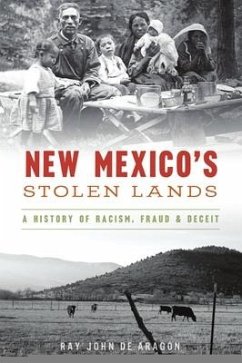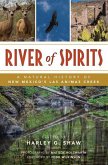When the Mexican-American War ended in 1848, the Treaty of Guadalupe Hidalgo guaranteed previous Spanish and Mexican land grants, as well as rights for Native Americans to their ancestral homelands. However, organized property theft began soon after. People were methodically dispossessed of their homes through manipulation, conspiracy and even organized crime rings, leading to widespread poverty and isolation. Then in 1967, the Tierra Amarilla Courthouse Raid, led by charismatic civil rights leader Reies Lâopez Tijerina, brought the age-old struggle over these stolen lands to the national stage. Author Ray John de Aragâon brings to light the suffering brought to New Mexico by land barons, cattlemen and unscrupulous politicians and the effects still felt today.
Hinweis: Dieser Artikel kann nur an eine deutsche Lieferadresse ausgeliefert werden.
Hinweis: Dieser Artikel kann nur an eine deutsche Lieferadresse ausgeliefert werden.








